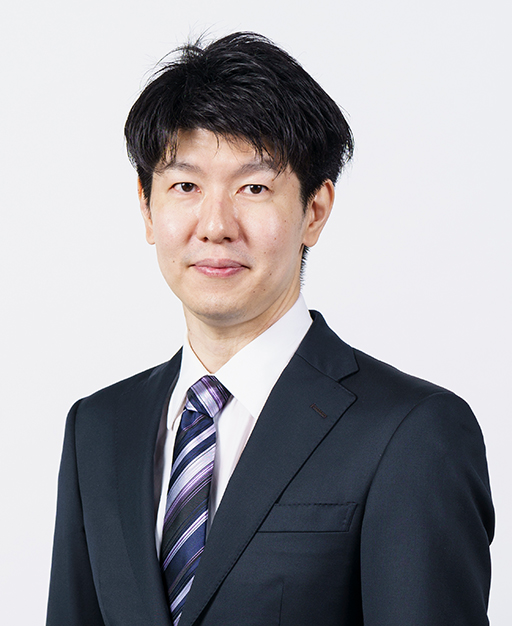トップページ
 イベント・広報
イベント・広報
 R-CCS Cafe
R-CCS Cafe
 R-CCS Cafe 第281回(2025年12月1日)
R-CCS Cafe 第281回(2025年12月1日)
R-CCS Cafe 第281回(2025年12月1日)
English| 開催日 | 2025年12月1日(月) |
|---|---|
| 開催時間 | 13:00 - 16:30(13:10 - 14:10 講演者2名による講演、14:30 - 15:30 講演者3名による講演、15:40~ 自由討論(参加自由)) |
| 開催都市 | 兵庫県神戸市/オンライン |
| 場所 | 計算科学研究センター(R-CCS)6階講堂/Zoomによる遠隔セミナー
|
| 使用言語 | 発表・スライド共に英語 |
| 登壇者 |
村井均 運用技術部門ソフトウェア開発技術ユニット  山本啓二 運用技術部門先端運用技術ユニット  Theresa Pollinger 高性能計算モデリング研究チーム  Werner Florian Samayoa プロセッサ研究チーム  Soratouch Pornmaneerattanatri 量子HPCソフトウェア環境開発ユニット  |
講演題目・要旨
1st Speaker: 村井均
Title:
Development of Programming Environment for Fugaku and FugakuNEXT
Abstract:
準備中
2nd Speaker: 山本啓二
Title:
Leveraging Operational Experience on Fugaku for the Future FugakuNEXT
Abstract:
Since it began shared use in 2021, Fugaku has been operated as a large-scale computing system that supports many types of workloads, from traditional scientific simulations to AI. Through daily operations, we have learned many important lessons, including the need for more advanced operational capabilities, the growing variety of workloads, and stronger demands for power efficiency.
In this talk, I will summarize the issues found during the operation of Fugaku and the operational knowledge we have gained. I will also discuss how we plan to use these lessons in designing the operations of FugakuNEXT, which is scheduled to be deployed in 2030. I will focus on several key points: designing an energy-efficient data center, building an operations model that can support both AI and HPC workloads, making better use of operational data, improving the user experience, and balancing sustainability with system reliability.
3rd Speaker: Theresa Pollinger
Title:
Efficient Anisotropic Mesh Refinement with Omnitrees ...or How to Get Cat GIFs Into Your Paper
Abstract:
This presentation discusses omnitrees, a novel data structure that generalizes traditional octrees to support anisotropic refinement in adaptive mesh refinement (AMR) schemes. Omnitrees address a long-standing inefficiency in AMR for anisotropic problems: conventionally, much resolution is spent where little information is gained.
Omnitrees directly solve this problem by allowing to selectively refine only the most informative dimensions, which increases the order of convergence in AMR schemes. We show this effect on the problem of shape representation across 4,166 three-dimensional objects. The result are efficient data structures, insights into anisotropy, convergence, and information density, and of course, cat GIFs!
4th Speaker: Werner Florian Samayoa
Title:
Scaling MWPM decoding for QEC
Abstract:
With the advent of quantum processors and algorithms, the race for functionality began. Several quantum technologies offer advantages over others, with superconducting qubits being the fastest. This makes them the most attractive technology despite suffering from two big drawbacks. The first is physical scaling, which is limited by the space inside refrigerators and the drop in cooling effectiveness as they grow. The second, and most crucial, is short coherence times and noisy operations, which render them barely usable in their current state. This second aspect is the focus of our work as we optimize algorithmic implementations of error-correcting codes to improve reliability, aiming at real-time execution. One of the most promising approaches is using error-correction codes to increase the fidelity. This introduced its own challenges, such as design, implementation, and scaling for real-time quantum error correction. We are working specifically on surface-codes with MWPM decoding. Currently we are scaling our solution for multiple FPGAs making use of several optimizations' techniques.
5th Speaker: Soratouch Pornmaneerattanatri
Title:
Python-based workflow system for Quantum-HPC Hybrid Application
Abstract:
The rise of physical quantum computer availability and accessibility to the public increases the interest of researchers in various domains. In order to operate the quantum computer, users have to construct their quantum circuit based on each machine manufacturer development kit. Most of these development kits are developed for Python in favor of accessibility and a user-friendly environment. However, the quantum application is not just a quantum circuit execution. It needs the preparation phase and also the output interpreter phase. Each phase may require different computing resources to work efficiently. We developed a Python-based workflow system to assist users in executing their quantum applications within a rich and diverse computing environment, such as large-scale HPC systems. Our workflow system provides interoperability across heterogeneous platforms by introducing an abstraction layer for job submission, allowing both quantum and HPC workloads to be submitted seamlessly to systems with different job-submission interfaces. This workflow system can divide the application into smaller tasks and allow each task to pair with the suitable computing resources. We conducted the experiments by applying this workflow system with Quantum Phase Estimation, Sample-based Quantum Diagonalization, and Quantum Machine Learning. The results of the experiments demonstrate that each divided task from both applications can be executed on different computing resources efficiently.
注意事項
- 参加の際はPCマイクの音声・ビデオをオフにされるようお願いいたします。
- 当日の会場環境や通信状態により、やむなく配信を中止・中断する場合がございます。
- プログラムの内容、時間は予告なく変更される場合があります。
- ご使用の機器やネットワークの環境によっては、ご視聴いただけない場合がございます。
- インターネット中継に関する著作権は、主催者及び発表者に帰属します。なお、配信された映像及び音声、若しくはその内容を、理化学研究所の許可無くほかのウェブサイトや著作物等への転載、複製、改変等を行うことを禁じます。
(2025年11月25日)
